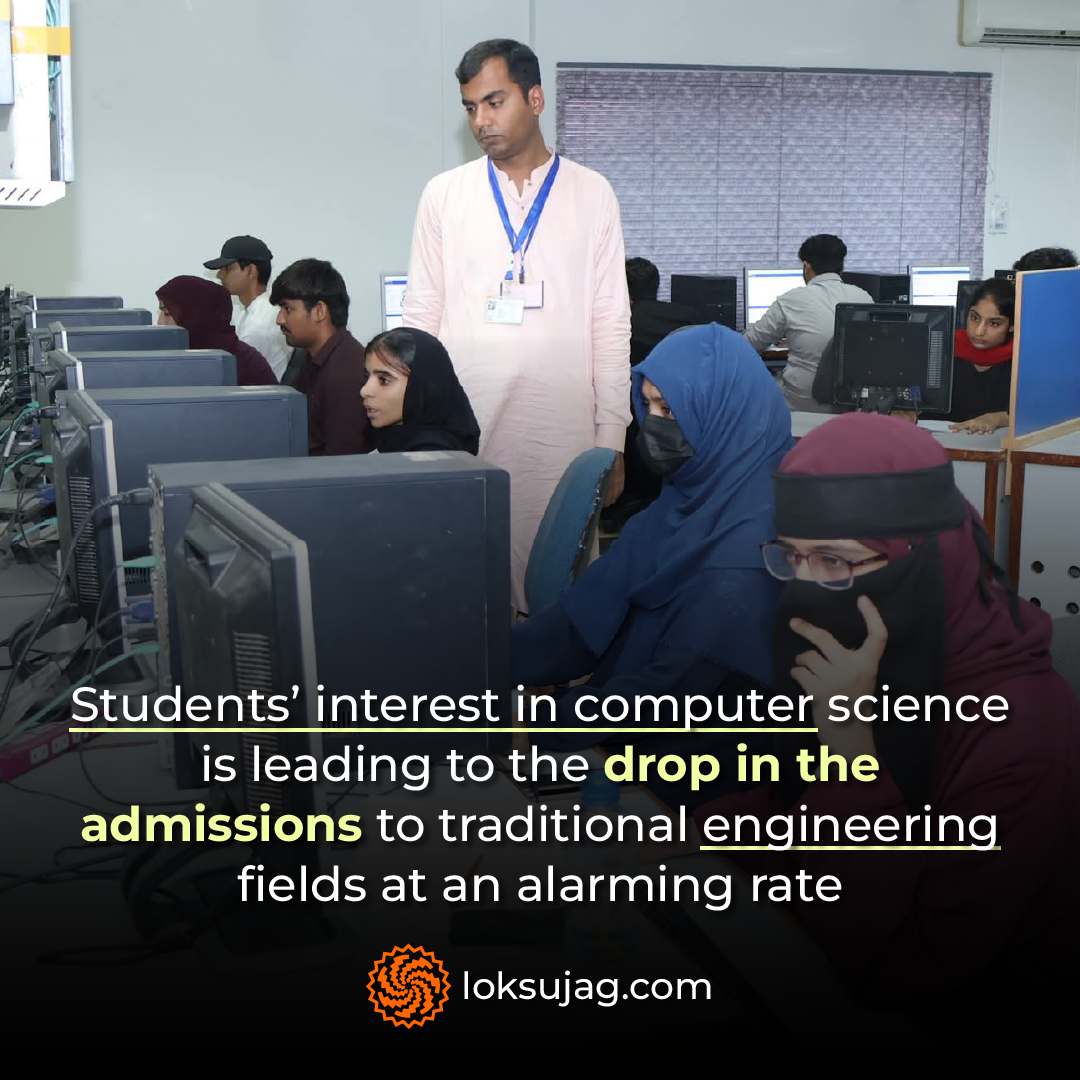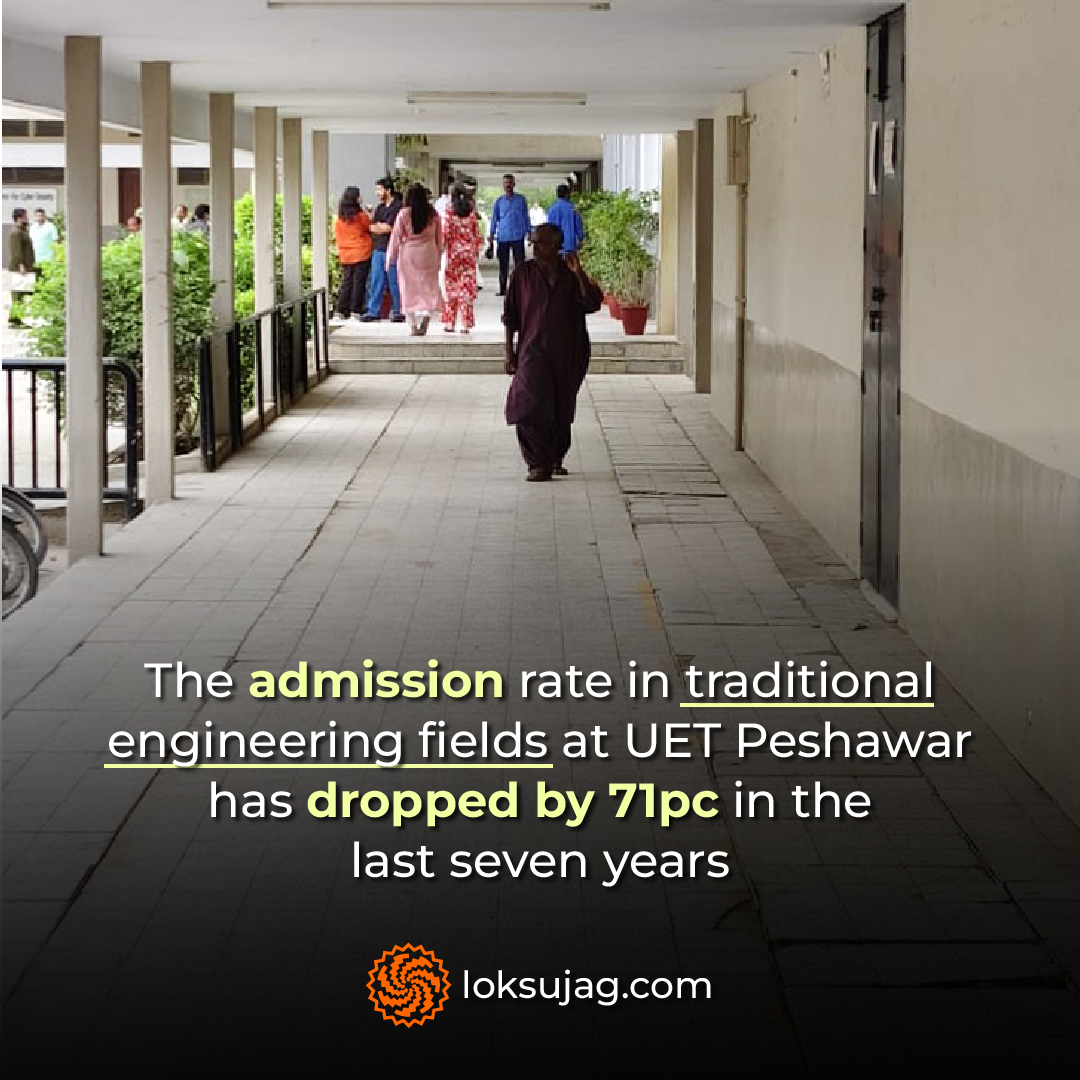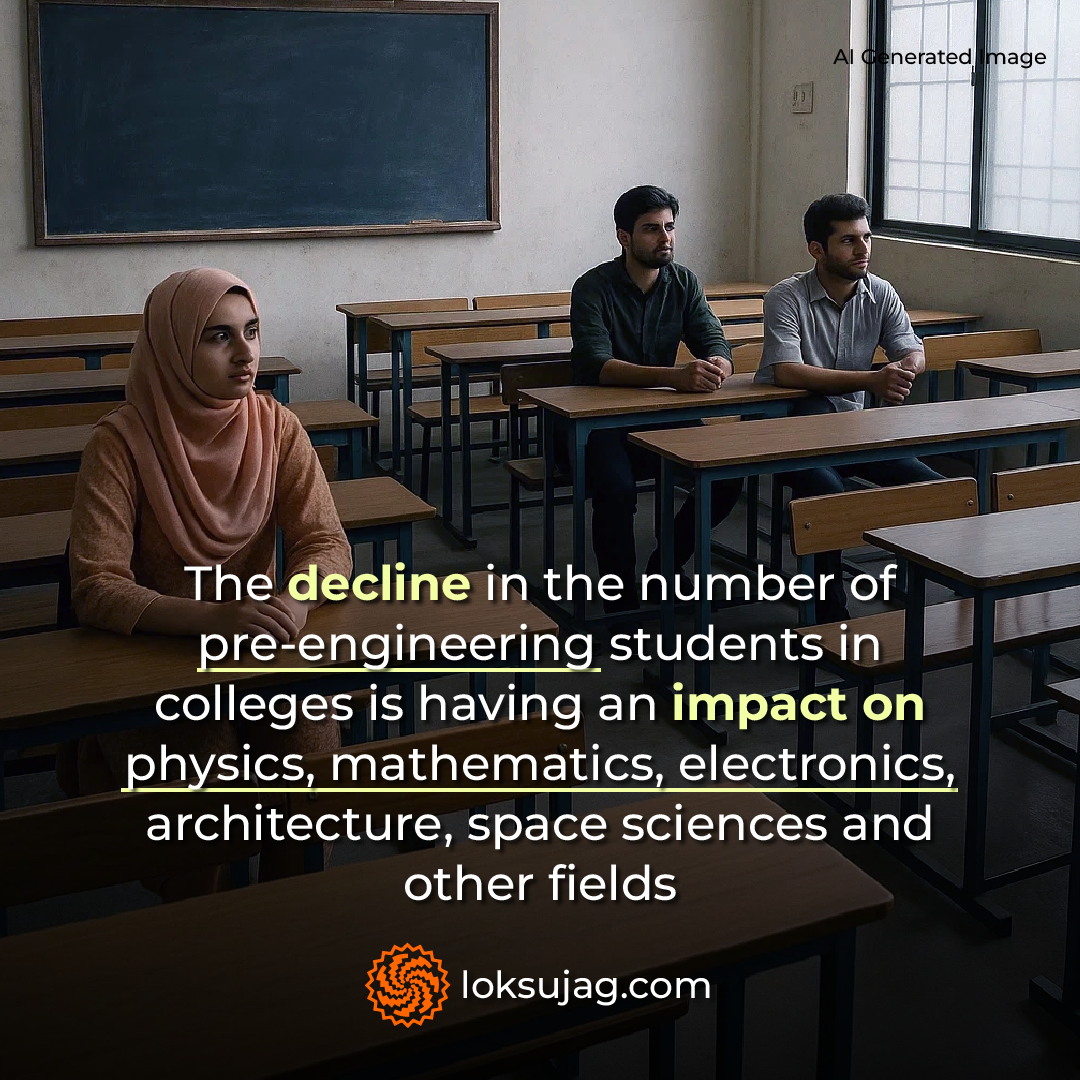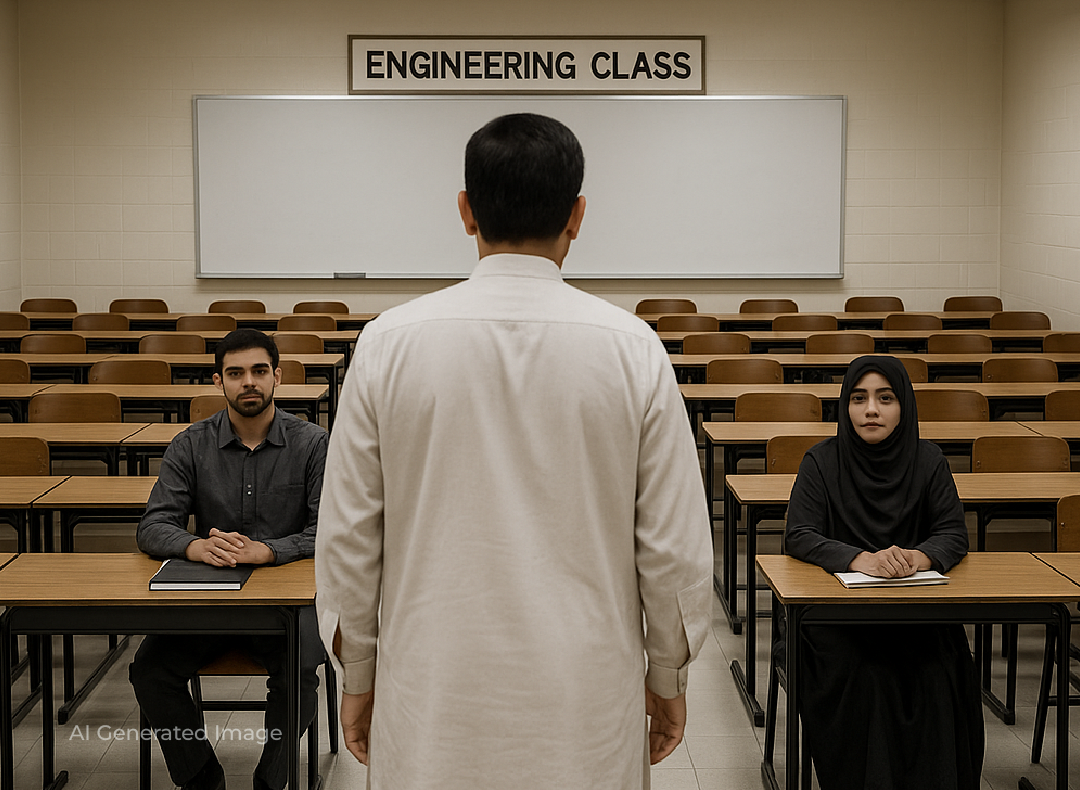Farhan Ali Qazi, a resident of a rural area of Thatta district, is waiting for his turn to give an interview for admission to the Mehran University of Engineering and Technology, Jamshoro. He is sitting in the auditorium of the university accompanied by his father.
He sat the test held for admission to software engineering in the academic year 2025-26 in which he secured 63pc marks. Three seats each for software and civil engineering are reserved for rural candidates of Thatta district in the main campus of Jamshoro University.
Farhan is ranked first in his district on merit so he is hopeful for admission to software engineering. He says that he had first admission to the intermediate pre-medical group in Thatta but he later switched his subjects on the advice of his parents and fellow students and left biology for mathematics. Thus, he completed his intermediate with good marks in the pre-engineering.
According to him, there is no scope in the medical group if a student does not get admission to MBBS. He stresses that it’s the age of computers.
Farman Ali Zardari, a resident of Shahdadpur tehsil of Sanghar, did his Intermediate in the pre-engineering group from the Muslim College Hyderabad and secured 85pc marks in the entrance test of the Mehran Engineering University.
He also has only one choice and that is software engineering. Apparently, there is no obstacle in getting admission in the field of his choice.

Rise of computers and software engineering
Farman Ali believes that there are more opportunities for inventions and creative work in software engineering.
“In the modern era, with computer technology and software engineering, we can not only earn a living but can also solve many problems with it. I want to resolve problems of the people,” he says.
The importance of computer engineering and technology and the interest of the youth in it are impossible to deny but the admission rate in traditional fields of engineering is decreasing at an alarming rate.
Professor Iftikhar Ahmed of the University of Malakand and his son Omar Ahmed Noor are research scholars in civil engineering at the National University of Sciences and Technology (NUST) Islamabad. Both of them published a research paper, titled Unprecedented Challenges Facing Engineering Education in Pakistan, last year.
The report shows that admissions to traditional engineering and technology courses in Pakistan are declining rapidly. The number of candidates seeking admission to the University of Engineering and Technology Peshawar has decreased by 71pc in seven years.
More than 16,000 candidates appeared for the 2017 entrance exam for the same university, but only 4,579 candidates appeared for the 2023 entrance exam.
The authors say that the number of engineering students in Pakistan did not suddenly decrease. There has been a significant decrease in the number of students admitted to pre-engineering courses at the college level, which has had a direct impact on the rest of the engineering courses.
The possible reasons for this could be a decrease in demand for engineers, a decline in the quality of engineering education, or a slowdown in the engineering and industrial sectors in the country.

More imports, missing industry, lack of jobs
Former Vice Chancellor NED University Karachi Dr Sarosh Hashmat Lodhi is now the senior vice chairman of the Pakistan Engineering Council and also the chairman of the Charter Inspection and Evaluation Committee of Sindh Universities.
He confirms the decline in admissions to traditional fields of engineering and technology, saying that the number of admissions to higher education institutions of engineering in Punjab and Khyber Pakhtunkhwa is very bad. Now the same trend is being seen in Sindh too.
The Pakistan Engineering Council (PEC) data shows that the number of registered engineers across the country is 394,548, including 181,621 in Punjab, 121,121 in Sindh, 62,941 in Khyber Pakhtunkhwa, 11,473 in Balochistan, 5,455 in the federal territory, 8,806 in Azad Kashmir and 2,478 in Gilgit-Baltistan.
According to Dr Lodhi, there are no job opportunities for engineers in the country in traditional fields. Now the situation is so bad that admissions have decreased even in the departments like civil, electrical, mechanical and petroleum, which are called the mother of engineering. He says that students take admission to a certain field, considering the number of job opportunities there.
In Pakistan, the number of admissions in all engineering fields except computer and software-related fields has decreased.
“We import everything from abroad. The manufacturing industry is non-existent. The industries that do exist are burdened by taxes and heavy costs. Cheaper Chinese products are available compared to the goods manufactured here. What is being created in our country that will allow engineers to work in these factories and get employment?”

Minimum investment for work in the IT industry
According to the annual report of the Higher Education Commission (HEC), in 2021-22, the highest number of admissions in the country's higher educational institutions was in Arts and Humanities, Natural Sciences and Mathematics, which numbered more than 700,000.
Business Administration and Law were in second place, in which more than 400,000 students took admission.
Only six percent, or 166,000 students, took admission in Engineering and Technology, while computer-related fields accounted for 10 percent of the total admissions, which was about 277,000, and artificial intelligence was also found to be at the top among them.
According to Umar Ahmed, the trend of computer, artificial intelligence, software and data science education has increased in Pakistan in the last three to four years. During the research, data from the inter-examinations of six education boards, namely the Federal Board as well as Lahore, Gujranwala, Bahawalpur, Faisalabad and Dera Ismail Khan boards, was reviewed.
Over the last 10 years, the number of students in the pre-engineering group has been decreasing, which is having an impact on Physics, Mathematics, Computer Science, Electronics, Architecture, Space Sciences and other fields. Getting into the pre-engineering group is a basic requirement for admission to the above-mentioned departments.
When fewer children are choosing this group in colleges, naturally there would not be any students joining the related fields in higher educational institutions?

Dr Sarosh Hashmat Lodhi says that children who take three and six months long computer courses are now earning up to $1,000 per month working from home.
The importance of computer and software degrees has increased because they do not require setting up a factory for employment, nor much money. All you need is a laptop and an internet connection.
“Pakistan Engineering Council is only a regulatory body, making policies and providing employment is the job of the government. We realize that the number of engineers is decreasing, which will cost the country in the future,” says Dr Hashmat.
Published on 4 Aug 2025


















